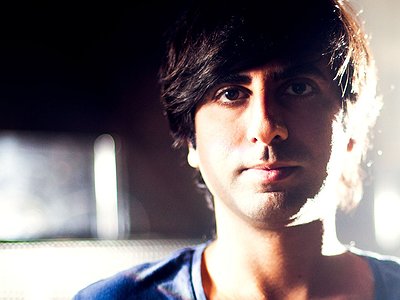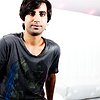Part 1
Name: Guy J
Nationality: Israeli
Occupation: DJ / Producer
Labels: Bedrock
Current Release: The Trees, The Sea & The Sun on Bedrock
Musical Recommendations: John Digweed and Hernan Cattaneo
If you enjoyed this interview with Guy J, visit his website and Facebook profile for updates.
When did you start DJing - and what or who were your early passions and influences?
I started at the age of 15, empowered by the energy of electronic music, original music that made people move and be together. I was influenced a lot by trance music and John Digweed’s radio mixes. There was always the element of telling a story in each set or a track.
For most artists, originality is first preceded by a phase of learning and, often, emulating others. What was this like for you?
When I started, of course I was trying to make similar sounds to those I liked and the tools I had were very simple. With time you find the right instruments and synths that you become comfortable with and you create the environment that is right for you to create your own sound and style.
What were some of the main challenges when starting out as a DJ and how have they changed over time?
The main challenge that is there from the moment I start is to bring something original, it’s still here with me. I always work on music so I can have something new when I play at gigs. When I play at a club I try and make sure people will hear music that they can hear only from me, so they get something unique.
What is it about DJing, compared to, say, producing your own music, that makes it interesting for you?
For me DJing completes my production process. I write music and then play it in a club.
Speaking of production, you've described that you've always been a 'slow learner but a fast worker'. How does that work in practise – and what did you, concretely, learn during the process of writing The Trees, The Sea & The Sun?
I believe being a producer is a process that you learn until your last day on earth, you always learn new tricks and new techniques, it is endless. During the making of The Trees the Sea & The Sun I was researching new things to do in the studio and found some stuff that made my sound better - not only for my album but for my production in general. This is the beauty of electronic music: that it is endless. Shame that some tracks sound so empty today when you have that many options.
What, to you, are the respective benefits of being able to finish productions quickly on the one hand, or spending a lot of time fine-tuning them?
The benefit is that I have a lot of music of course, original music. Even when I finish a track I go back to it after a month or two and change something small, sometimes I even go back to tracks I started two years ago. I will open the project and finish them. It all depends on the mood and creativity at the time.
As with your previous albums, The Trees, The Sea & The Sun comprises of two parts – a more uptempo first CD and a more downtempo second one. Why is it important to you to always present both aspects of electronic music together instead of separating them into two distinct releases?
When you make an album I think it is like your business card, it is your project to present yourself to the world. The “club” music I do is what people know me for, the downtempo stuff is my passion and this is the opportunity to give to the fans another side of me, the people who follow me as an artist deserve to know me best as an artist, where I am musically.
The track titles to the tracks on The Trees, The Sea & The Sun imply a very close connection between a certain space, an image or a mood and the music. Can you tell me a bit how this connection manifest itself in your productions in practise?
Almost each track I create reminds me of a moment. I get inspired by my daily life and my surroundings, so some of the track names are for me to remember which moment and what idea was behind it.
What was your first set-up as DJ like? How has your set-up evolved over the years and what are currently some of the most important pieces of gear for you?
I started with CDs, then moved to vinyl, then Ableton and now Traktor. I’ve tried it all. I loved playing gigs with Ableton but Traktor has better sound so I decided to change recently.
How do you see the relationship between the tools you're using and the creative results – in which way do certain tools suggest certain approaches, in which way do they limit and/or expand your own creativity?
To be honest, almost everyone has their mix synced, and to find BPM of each track to mix is not a big deal, the attention should be on the tracks being selected. Today you actually have more time to focus on the music you play; the problem with technology is more touching the production side.
Could you take me through the process of preparing for one of your gigs, please? How do you select the tracks you like to play, how do you prepare and how do you decide on the opening phase of your set?
I play mostly my own music so I know the tracks very well. It depends on the club I perform in. I try to select the tracks I didn’t play and it also depends on how long I play. I love long sets so I can build up the atmosphere and play a lot of music! I got to play recently with John Digweed, so when playing before him I try to prepare the dance floor for him.
What constitutes great mixing from your point of view? What are some of the sets that have personally impressed you over the years?
There are a few sets that influenced me a lot, one of them was first Guy Gerber Transitions mix, the first one he made was amazing. Another one is Richie Hawtin from Maida Vale. Both take you on journey. There are changes, but when you remember it, it feels like one track.






